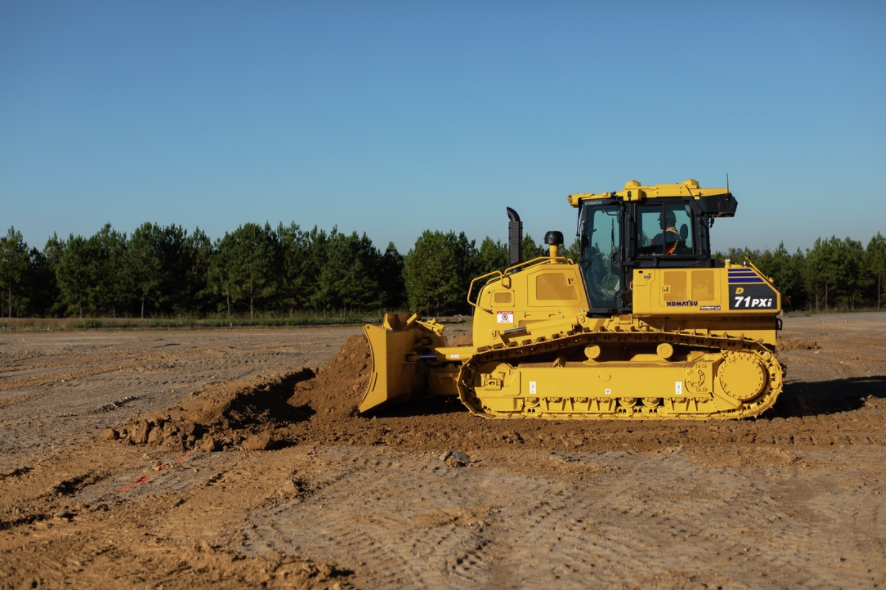Komatsu’s D71EX-24/PX-24 with the most powerful hydrostatic transmission (HST) dozer in its size class is effective at grading, pushing, side-cutting and work on soft ground, giving you the flexibility to move from production to finishing with a single machine.

Pushing with 237 horsepower, Komatsu’s largest HST dozer [49,825 lbs.- 52,910 lbs. (22,600 kg – 24,000 kg)] helps operators maintain ground speed while operating under heavy loads in H mode. Its distinctive slant nose design offers outstanding visibility to the cutting edges and excellent balance and maneuverability.
Offering precision on the job site, from golf course construction to highway projects, the D71-24 is an all-around crawler dozer. It is equally adept at precise, high-speed grading and rough dozing, and is designed to provide outstanding wearability and functionality with its high-capacity, wear-resistant dozer blade. The dozer’s Parallel Link Undercarriage System (PLUS) features rotating bushings to help minimize maintenance downtime and cost of ownership.

D71-24 and intelligent Machine Control, iMC 2.0
The industry’s newest slant-nosed HST dozer is also available with Komatsu’s latest intelligent Machine Control (iMC) 2.0 capabilities:
- Lift layer control optimizes earthwork productivity with the press of a button. It maintains compaction quality by automatically controlling lifts to the desired height. Excess fill is eliminated as automatic blade control follows the finish surface once lifts have reached finished grade.
- Tilt steering control automatically tilts the blade to maintain straight travel during rough dozing. Reduces operator steering input by up to 80%.
- Operators can create a temporary design surface with the press of a button with quick surface creation. Combined with other iMC 2.0 functions, crews can begin stripping or spreading using automated input while waiting for the finish grade model.
- With proactive dozing control, even less experienced operators can automatically cut/strip from existing terrain. The dozer measures the terrain it tracks over and uses that data to plan the next pass, improving productivity by up to 60% versus previous generation machines.
 Copyright 2020 All rights reserved.
Copyright 2020 All rights reserved.